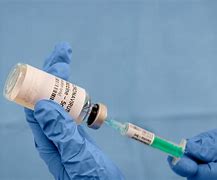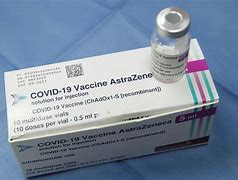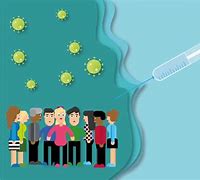COVID-19 Worsens TB Cases in Nigeria – Director
 Mrs Uko Itohowo, the Director, National Tuberculosis and Leprosy Control Programme, says COVID-19 has worsened Tuberculosis (TB) cases in Nigeria as about 60 per cent of patients go unnoticed and untreated. Itohowo said this on Monday in a virtual media seminar with newsmen in Ilorin.
Mrs Uko Itohowo, the Director, National Tuberculosis and Leprosy Control Programme, says COVID-19 has worsened Tuberculosis (TB) cases in Nigeria as about 60 per cent of patients go unnoticed and untreated. Itohowo said this on Monday in a virtual media seminar with newsmen in Ilorin.
She said currently, TB kills 18 Nigerians every hour, with a record number of 47 Nigerians developing active TB every hour, seven of which are children. Itohowo observed that all attention were being placed on COVID-19 to the detriment of TB, which is equally a deadly disease. She said that although TB is a deadly disease yet with proper treatment it could be cured.
UNICEF, WHO Kick against Discrimination of COVID-19 Survivors
 Nigerians and the world at large have been urged to stop discrimination against survivors and those afflicted with coronavirus, even as the demand for vaccine passports that is being agitated by some European countries has been described as unnecessary.
Nigerians and the world at large have been urged to stop discrimination against survivors and those afflicted with coronavirus, even as the demand for vaccine passports that is being agitated by some European countries has been described as unnecessary.
This is coming as the World Health Organisation, WHO, has kicked against the demand for vaccine passports or certificates as being agitated by some European countries before entry by travellers from abroad.
Lagos to start second dose of COVID-19 vaccination in May
 The Lagos State Government on Wednesday said it has concluded the first half of phase one COVID-19 vaccination in line with the directive of the National Primary Health Care Development Agency.
The Lagos State Government on Wednesday said it has concluded the first half of phase one COVID-19 vaccination in line with the directive of the National Primary Health Care Development Agency.
The state Commissioner for Health, Prof. Akin Abayomi, in a statement said the exercise which began on March 12 was done for 20 days. Abayomi said the second phase of the exercise would commence in May, saying about 257,756 persons had been inoculated as of April 15.
Lagos investigating two cases of ‘blood clotting disorder’ after AstraZeneca vaccination
 The Lagos State Government says it is investigating two cases of ‘blood clotting disorder’ after AstraZeneca vaccination. The state government revealed this in a Press release emailed by the Director of Public Affairs in the Ministry, Mr. Tunbosun Ogunbanwo; and signed by the Commissioner of Health, Prof. Akin Abayomi, on Wednesday.
The Lagos State Government says it is investigating two cases of ‘blood clotting disorder’ after AstraZeneca vaccination. The state government revealed this in a Press release emailed by the Director of Public Affairs in the Ministry, Mr. Tunbosun Ogunbanwo; and signed by the Commissioner of Health, Prof. Akin Abayomi, on Wednesday.
“We are being extremely diligent for blood coagulation disorders in view of the prevailing international scientific attention to the possibility of increased risk of developing blood clotting disorders and two cases are being investigated.
Disposable masks should be worn once, says virologist
 A medical virologist, Dr Kolawole Oladipo, has recommended a mask per day depending on its type if such mask has not been contaminated. Oladipo, in an interview with our correspondent, said the wearing of a facemask for a long time could lead to headaches, reduction in blood oxygenation, allergies, itchiness, and redness on the skin.
A medical virologist, Dr Kolawole Oladipo, has recommended a mask per day depending on its type if such mask has not been contaminated. Oladipo, in an interview with our correspondent, said the wearing of a facemask for a long time could lead to headaches, reduction in blood oxygenation, allergies, itchiness, and redness on the skin.
He said, “I will recommend a mask per day depending on its type, if such mask has not been contaminated through one or other activities.
Why alcohol should be avoided before and after COVID-19 vaccination –Physicians
 Following concerns about the possible effects of alcohol on COVID-19 vaccine, medical experts say it is advisable to refrain from taking alcohol before vaccination and immediately after receiving the vaccine.
Following concerns about the possible effects of alcohol on COVID-19 vaccine, medical experts say it is advisable to refrain from taking alcohol before vaccination and immediately after receiving the vaccine.
There are, however, other experts still insisting there is no evidence to support the claim that drinking alcohol will negatively affect the body’s response to COVID-19 vaccine. For a renowned Professor of virology and former Vice-Chancellor of the Redeemer’s University, Oyewale Tomori, the best thing for people to do,
Observing social distancing indoors doesn’t curb COVID-19 spread -Study
 A study states that observing social distancing by staying six feet apart indoors can’t effectively prevent the spread of COVID-19. Findings from the research shows that other factors, like the number of people in a space, whether they use face masks, what they are doing, and the level of ventilation, are much more important.
A study states that observing social distancing by staying six feet apart indoors can’t effectively prevent the spread of COVID-19. Findings from the research shows that other factors, like the number of people in a space, whether they use face masks, what they are doing, and the level of ventilation, are much more important.
The study was carried out by researchers at the Massachusetts Institute of Technology, USA, and published online in PNAS, a peer-reviewed, multidisciplinary scientific journal of the National Academy of Sciences.
How your weight determines if you’ll carry your pregnancy to term
 Women who are underweight or overweight are at a significantly higher risk of experiencing recurrent miscarriages compared to those of average weight, says a new United Kingdom study.
Women who are underweight or overweight are at a significantly higher risk of experiencing recurrent miscarriages compared to those of average weight, says a new United Kingdom study.
The study, led by a team of researchers from the University of Southampton, United Kingdom, notes that abnormal Body Mass Index exacerbates a woman’s risk of suffering from repeated miscarriages. The researchers, in the study published in Science Daily, assessed the link between women’s lifestyle and risk of recurrent pregnancy loss.
Why it’s dangerous to skip second dose of COVID-19 vaccine
 Physicians have warned against skipping the second dose of the AstraZeneca COVID-19 vaccination. They noted that such a decision can totally eliminate immunity already built against the virus and increase the risk of vulnerability to variants of COVID-19.
Physicians have warned against skipping the second dose of the AstraZeneca COVID-19 vaccination. They noted that such a decision can totally eliminate immunity already built against the virus and increase the risk of vulnerability to variants of COVID-19.
While the first dose might provide some form of protection, the experts said the second dose will further strengthen the immune system due to the high number of antibodies that will be subsequently generated. According to a preliminary study carried out by scientists at the Oxford University, one dose of the Oxford-AstraZeneca vaccine provides sustained protection against COVID-19 for at least three months and cuts transmission of the virus by two-thirds.
Why Type 2 diabetes is usually dangerously confused with other conditions -Study
 A new study undertaken by the University of Exeter revealed that those with Type 2 diabetes wait an average of 2.3 years, and sometimes more than five, before getting diagnosed. The study also notes that the difficulty in identifying Type 2 diabetes symptoms makes doctors to confuse it with other conditions.
A new study undertaken by the University of Exeter revealed that those with Type 2 diabetes wait an average of 2.3 years, and sometimes more than five, before getting diagnosed. The study also notes that the difficulty in identifying Type 2 diabetes symptoms makes doctors to confuse it with other conditions.
According to a National Centre for Biotechnology Information, U.S. National Library of Medicine report titled, ‘Prevalence and Risk Factors for Diabetes Mellitus in Nigeria: A Systematic Review and Meta-Analysis‘ and published in May 2018, in Nigeria, the current prevalence of diabetes mellitus among adults aged 20–69 years is reported to be 1.7 percent.






